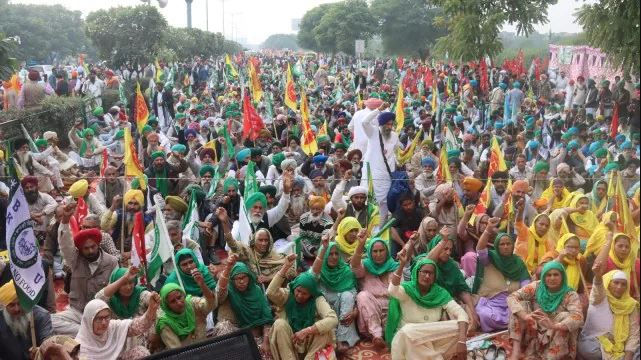Erdogan's visit to the Kingdom is expected to usher in a new era of cooperation between the two coun
- guru prakash
- Apr 30, 2022
- 4 min read
ANKARA: Following Thursday’s meeting in Jeddah between Turkish President Recep Tayyip Erdogan and King Salman of Saudi Arabia, the strained relationship between the two countries is expected to dramatically improve.
The ice-breaking meeting — the highest-level diplomatic rendezvous between Turkey and Saudi Arabia since 2017 — is part of broader efforts by Turkey to improve its relationships with Saudi Arabia and the United Arab Emirates in recent months, during which economic ties have been revived and Turkey has abstained from regional conflicts. Earlier this year, Saudi Arabia lifted its ban on Turkish goods, which had been in effect for four years.
As a result of Erdogan’s visit, the two countries are set to boost bilateral cooperation in health, energy, food security, defense, agriculture and finance. Turkey’s emerging drone technology may also be of interest to Riyadh.
Erdogan was received by Makkah Governor Prince Khalid Al-Faisal, who is also advisor to the Custodian of the Two Holy Mosques, and several senior officials. Erdogan also met with Crown Prince Mohammad bin Salman.
The two-day visit is expected to signal a new chapter not only in economic terms, but also in regional politics — forming a bloc that will have greater influence over regional crisis points.
Ahead of his visit, Erdogan told reporters in Istanbul: “My visit is a manifestation of our common will to start a new era of cooperation as two brotherly countries with historical, cultural and human ties. We attach as much importance to the stability and security of our brothers in the Gulf region as our own stability and security.”

On the first day of his visit, Erdogan said: “I believe we will take our relations to a level beyond what they were previously. My visit will open the doors of a new era with our friend (and) brother Saudi Arabia.”
A political alignment between the two countries will offer Ankara greater weight when it comes to issues including Syria, Egypt, Iraq and the Eastern Mediterranean.
Oubai Shahbandar, a defense analyst, thinks that Erdogan’s visit is a major boost for natural partners who share common security interests.
“Turkey’s defense industry will find an eager and valuable partner in Saudi Arabia,” he told Arab News. “And the Kingdom will benefit greatly from the wide variety of advanced tech expertise and products in Turkey’s defense sector that will be immeasurably valuable in Saudi’s ongoing counter-terror campaign against Iranian-backed proxies.”
The Turkish-Saudi defense partnership reached its peak in 2016 when ASELSAN, one of the top Turkish defense companies, signed a tripartite memorandum of understanding (MoU) with Saudi defense companies TAQNIA and KACST.
According to Shahbandar, Riyadh-Ankara security cooperation will likely expand over time based on their common interests and shared understanding on how to achieve regional stability in light of Iranian activity.
Betul Dogan Akkas, an associate fellow at Al-Sharq Strategic Research, thinks that the visit indicates a joint desire for diplomatic reconciliation.
“Erdogan referred to Houthi attacks on Saudi territory and condemned recent drone and missile attacks targeting Saudi land. His supportive comments to the Kingdom in respect to the war in Yemen are (significant). Although I don’t see that Saudi Arabia and Turkey will cooperate politically again in the short term in Libya or Syria, at least there will be some sort of narrative support,” she told Arab News.
Akkas highlighted several potential areas of cooperation.
“The initial chapter may be economic cooperation — this is not surprising, because the economy ranks top of Turkey’s agenda with the Gulf countries. Erdogan referred primarily to Turkish construction companies working and/or investing in the Kingdom,” she said.
Following Erdogan’s landmark visit, Turkish construction companies are also expected to take part in development projects as part of Saudi Arabia Vision 2030 — a reciprocally lucrative move that would lure Gulf capital into cash-strapped Turkey.
In 2020, Turkey’s exports to Saudi Arabia reached nearly $2.62 billion, while Saudi exports to Turkey — mostly fuel products — stood at about $1.8 billion.
A second area of cooperation, Akkas suggested, may be linked to the elimination of Ankara’s support for the Muslim Brotherhood.
“The less Turkey emphasizes (that) in its foreign policy discourse, the less tension there will be when it comes to bilateral ties,” she said.
Experts also underline that the rapprochement between Turkey and Saudi Arabia may lead to the formation of a common front against Iran.
“Turkey has been a supportive partner for the Gulf countries (against) Iran in the region and (helped to) balance its power and political machinations. The Joint Comprehensive Plan of Action is one part of it, but, in general, the Kingdom and Turkey will be cooperating over this ever-growing threat,” Akkas said.
According to Akkas, the last area for potential cooperation is Syria — although Riyadh and Ankara initially took different positions regarding Syrian President Bashar Assad.
“Middle Eastern countries have started an era of normalization with the Syrian regime, (with) Oman and the UAE following that path. When it comes to ‘accepting’ Assad or normalizing relations with the regime, Turkey-Saudi cooperation can help these countries politically,” Akkas said.
Read More : https://www.arabnews.com/node/2073666/middle-east



Comments